Though it had been around since the 1970s, It wasn't until the mid 2000s that the indie video game scene really came into its own. A stagnation of modern big-budget franchises, as well as the prominence of such creators as Jonathan Blow, Edmund McMillen and Markus "Notch" Persson saw indie games flourish, breathing life into a rigid industry and changing the landscape of video games forever. While AAA titles are constrained by corporate interference and bottom-lines, Indie games take risks, push boundaries and think outside the box, challenging preconceived notions of what the consumer considers to be a fun experience.
Without the backing of wealthy distributors and publishers, indie titles tend to settle for short-but-sweet endeavours often created by much smaller studios than the tried and true franchises we've all come to know. But what they lack in backing and man-power they more than make up for in their execution. Whether they're tapping straight into my nostalgia gland with pixelated visuals, teaching me the virtues of perseverance with trial-and-error systems or giving me something to think about with their heartfelt stories, indie games is just why I and many others have always wanted; a new genre of video games created by people who love video games.
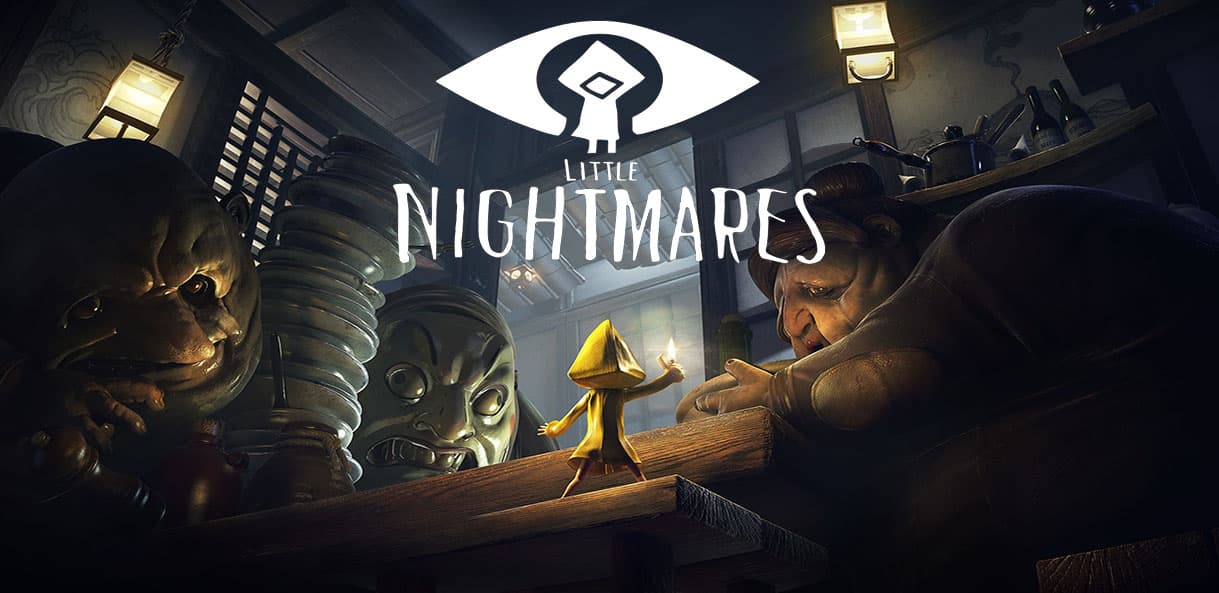
Take the unnerving visuals of a Jan Švankmajer movie and add the tone found in the darkest recesses of the Brothers Grimm tales and you get Little Nightmares: a suspenseful horror game that plays as a puzzle-platformer delivered in a twisted fairytale wrapping. The game follows Six: a yellow-raincoat-wearing child who finds herself navigating the labyrinthine passageways of a ship called The Maw, bypassing a number of the vessel's residents including the long-armed janitor and a couple of loose-fleshed chefs, as she looks to make her escape.
Before I mention anything else, I simply have to give credit to the visuals; this game is freakin' gorgeous. From the rust-ridden depths of The Maw's backgrounds all the way to the grotesque intricacies of its inhabitants, the aesthetics of this game will stick with you long after you've hit the off button. While it doesn't break much ground with its oftentimes jarring platforming, Little Nightmares does manage to keep a sense of tension all the way throughout, heightened further by the eerie toy-box soundtrack that'll accompany you as you progress.
Little Nightmares feels like a breath of fresh-air in a genre rife with semi-realistic, third-person survival horrors and first-person shooters. It proves that it is possible to maintain a level of stylistic flair while still provoking some of the best reactions out of your audience. Though it's considered a short game by today's standards, The balancing act this game performs to hit just the right levels of dread so as not to put off casual audiences, but still hit that sweet-spot horror fans all adore, is truly impressive.
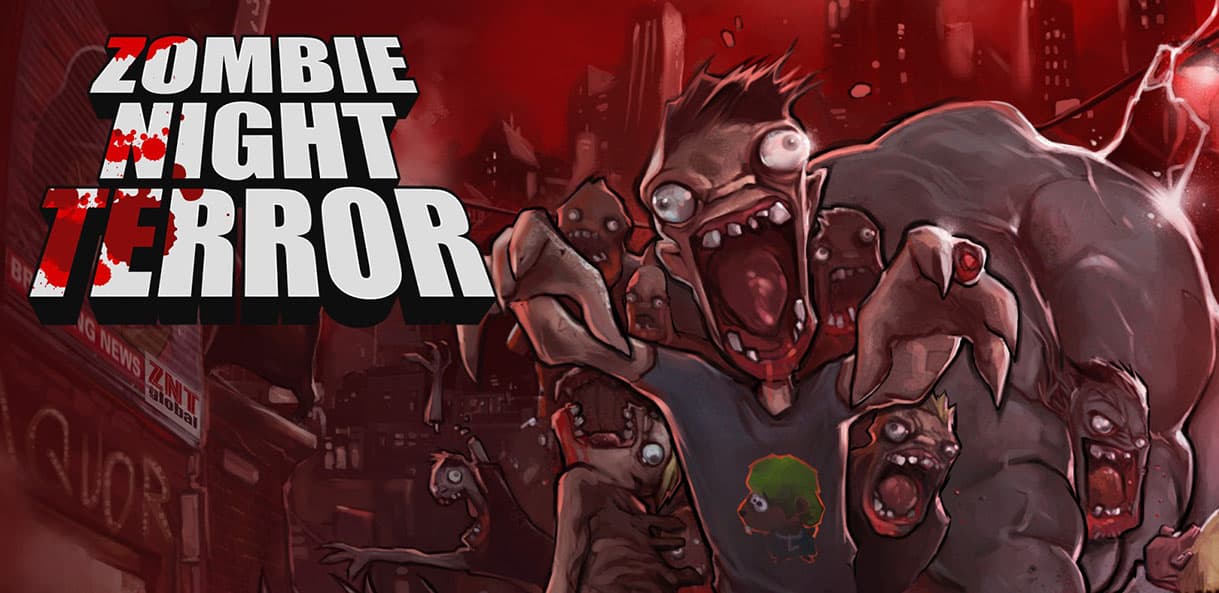
Ever since my childhood I've had a real soft-spot for 1991s Lemmings; The idea of safely seeing a group of relentless critters across a landscape of dangerous obstacles by gifting them the right combination of skills necessary to reach their end goal was a simple yet thrilling challenge. Now, Zombie Night Terror is certainly no Lemmings, after all, you're now controlling a horde of undead zombies instead of loveable critters, and instead of building bridges across chasms, you're tearing down doors and infecting your way through level after level, all for those sweet, sweet brain meats.
Zombie Night Terror did fall victim, at least initially, to being disregarded by myself as just another pixelated indie game among an ever-growing sea of pixelated indie games, but its the game's humour combined with the strict black, white, green and red colour palette that gave this strategy game its edge, and finally won me over. It does get to a point with the more difficult levels where it will take 10+ attempts before getting some brain meats, but with a relentless, electronic 80s soundtrack and more film homages than you can shake a disembodied limb at, this game proves to be anything but frustrating.
Zombie Night Terror is likely the most obscure game on this list and it seems to have been mostly overlooked, which is a damn shame, as it seems so rare that a puzzle-platform game comes along that can adequately fill that Lemming-shaped hole. Maybe it was the difficulty spike, or maybe the zombie theme had outstayed its welcome by the time it released, but I found that whereas it's nice to unload a shotgun into an enemy in a first-person shooter for a cathartic wind-down at the end of a long day, sometimes it's also nice to stick on a game like Zombie Night Terror to flex the ol' brain meats. I do love me them brain meats.
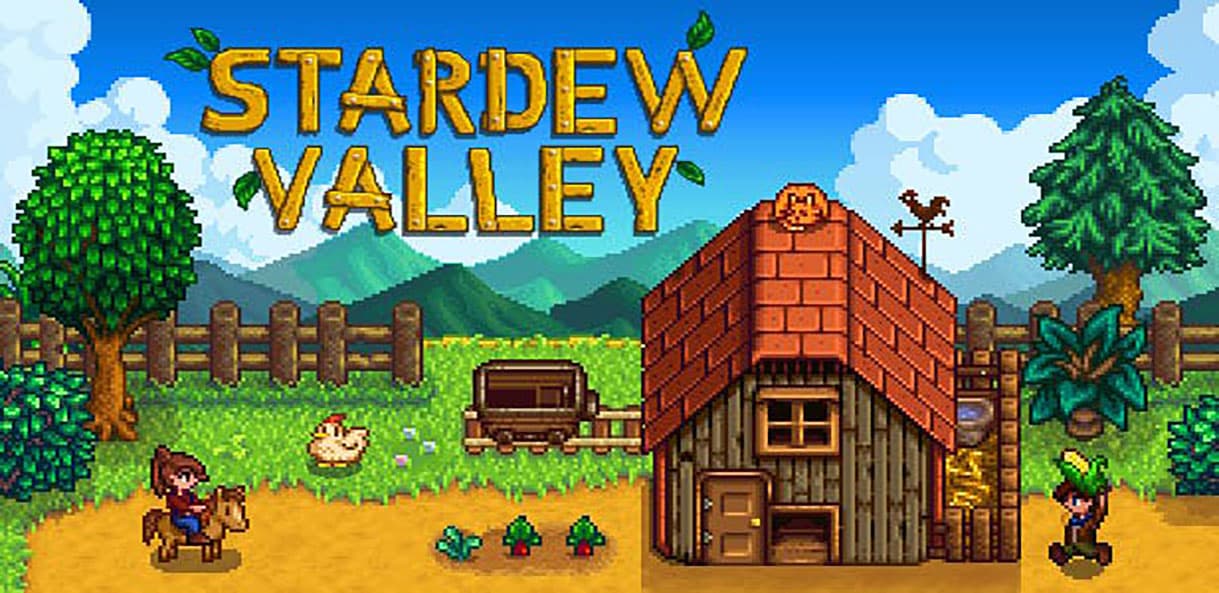
There was a time back in the 2000s when it felt like farming simulators were sprouting out of the goddamn' ground faster than any fictional crop of wheat could. You had your Hay Days, you had your FarmVilles, and with them all the friend requests to come visit some estate came rolling in. Thankfully, the spate of farm simulators completely passed me over, and I wasn't lucky enough to have played Harvest Moon for the Snes, so it was with great reluctance that I gave Stardew Valley a go at a friend's recommendation. "Start a farm" they said, "It'll be fun!" They said. What I learnt? They said some smart things.
Stardew Valley is an RPG farm-building simulator that offers up a stress-free yet highly addictive experience. The game opens with the main character inheriting a paltry, run-down farm, the lucky sod. After spending an entire day chatting to a few locals and clearing out some debris, you'll realise that this game is going to take some dedication. Before you know it, you'll be slaying jelly creatures in a desert cave as you scramble for resources to gift your love interest so they'll partner with you just in time for the annual Flower Dance. That's more investment than I dedicate to my actual life.
Essentially, Stardew Valley takes the entire gameplay premise of building a farm from scratch while interacting with locals, popularised and perfected by Harvest Moon, and as Harvest Moon seems to be taking a pretty long hiatus - I don't see much wrong with that. The game does get to a point where you'll feel like you're on auto-pilot and are simply just playing out of habit, but alternate choices and different starting conditions keep the whole experience, much like my endless sea of cabbage patches, exceedingly fresh.
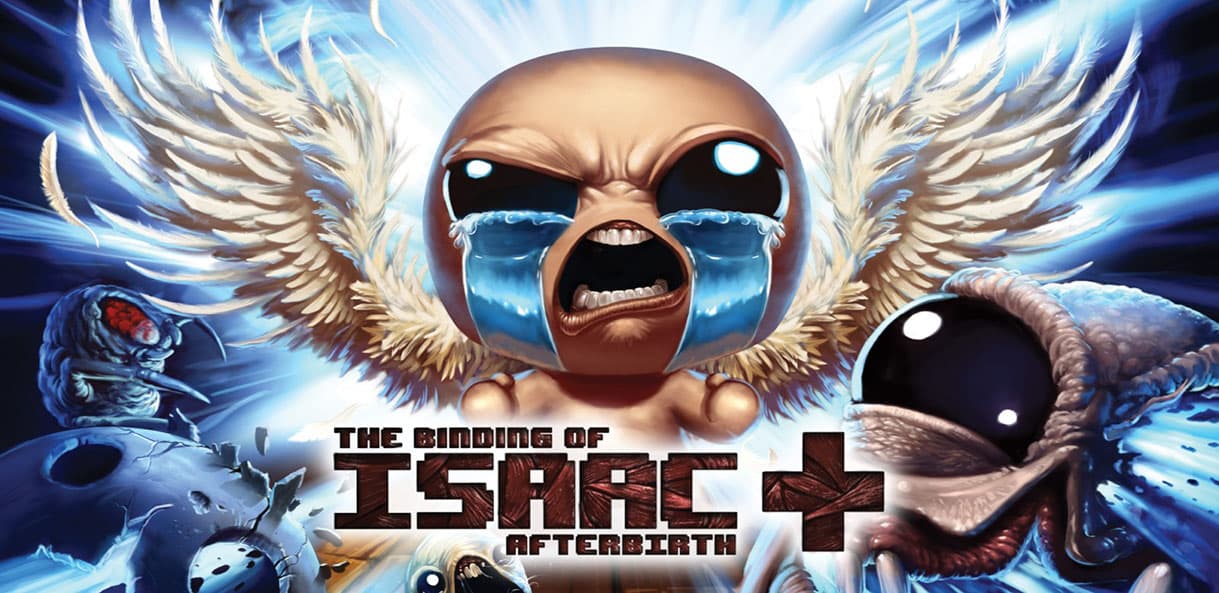
The idea of dungeon-crawling through procedurally generated rooms and dying over and over again with the promise that with persistence the experience will get better, just seemed to me like a headache waiting to happen. Little did I know that the rogue-like formula wouldn't only be hugely enjoyable, it would spawn some of my favourite video game purchases. On the surface, The Binding of Isaac seems like The Legend of Zelda infused with The Divine Comedy and other biblical undertones, but if you take the time to peel back the layers on this onion, you'll find a video game that has enough heart to see you through more attempts than you ever would've given yourself credit for.
It's a well-known fact that creator, Edmund McMillen, pours his very soul into his creations, and that is most evident throughout The Binding of Isaac and the numerous subsequent expansions that have followed. Few others could seamlessly blend a heartfelt story about a childs' inner turmoil manifesting as a religious journey through heaven and hell with smiling piles of shit that fart in order to propel themselves across a room (a sentence I always knew I'd write eventually). Every freaky character concept is fascinating, funny or both; the soundtrack is haunting yet catchy as all-hell; and the gameplay is simple, smooth and easy to pick up quickly.
Does The Binding of Isaac get monotonous at times? For sure, but there are enough insanely devestating item combinations, alternate routes and different characters to choose from that keep it pretty darn fresh, and by my 250th run you'll still discover hidden nuances about the game. Does The Binding of Isaac get control-shatteringly frustrating? Certainly, but that's all part of the rogue-like experience; you start out a green novice and end up a dojo master, punching the air like you've just won second prize in a beauty contest when you finally defeat Mega Satan for the first time. This game is brutally punishing, but it'll make a masochist out of you yet.
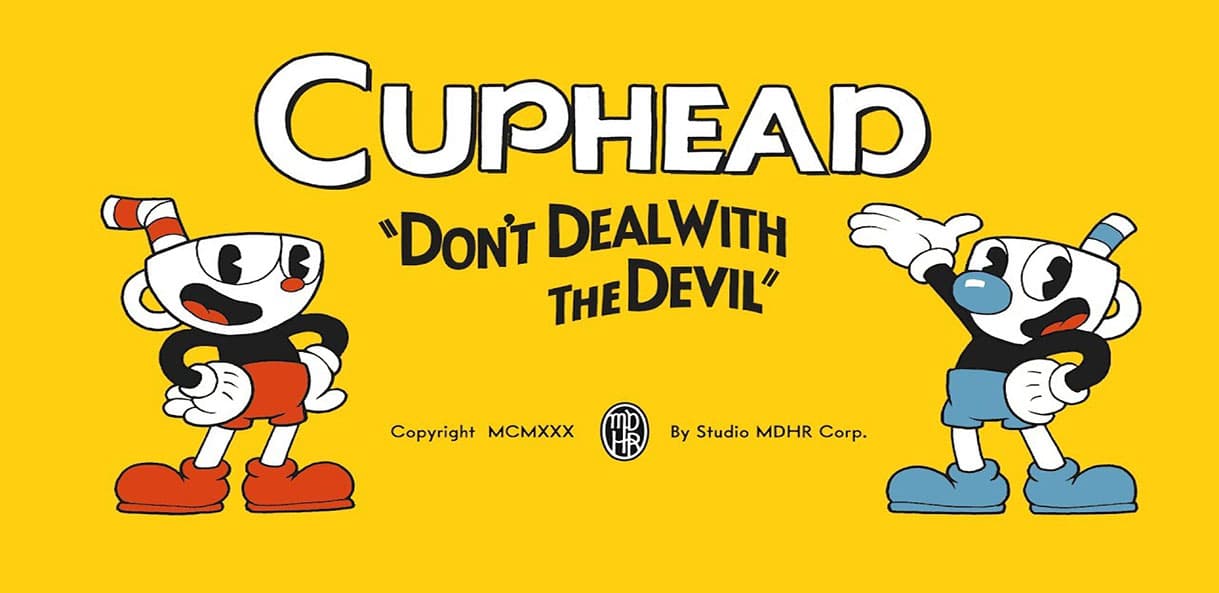
A video game that pays homage to the classic black and white cartoons of the 1930s seems like such a good idea that I'm surprised it took until 2017 before it happened. It was so well executed in Cuphead in fact that it actually made me consider buying an Xbox One just to try it out in person. Cuphead is a run-and-gun game where you and a second player control both Cuphead and Mugman: two brothers that become indebted to The Devil and are tasked with collecting the soul contracts from numerous debtors scattered across the Inkwell Isles by fighting them.
The game features item shops, helpful NPCs and platforming segments all spread out across a hub world. But the real meat and potatoes of the game is dedicated to boss battles; From angry mermaids and candy queens to three-headed dragons and ghost trains, you'll be ducking, dodging and jumping over everything and the kitchen sink to earn your win. Cuphead is a flag-bearer not only the nostalgia of long-forgotten cartoons, but of couch co-op, which seems to be a sub-genre the mainstream video game industry has wrongly put out to pasture, much to the dismay of people who want to be able to give a dead arm to the "friend" who just cost them the win.
What this game boils down to essentially, is how quickly you're able learn from trial and error. Once you start learning the debtors' tells, memorising their patterns and getting used to your own abilities, you'll finally manage to taste sweet victory and get a rank based on your performance - and then you get to do it all over again for the next boss. The visuals are unique and stunning, the music and sound effects are nostalgia-inducing (age-dependant), and giving gamers the opportunity to overcome challenges with a friend on a shared couch again makes Cuphead not only a great time, it's an absolute necessity.
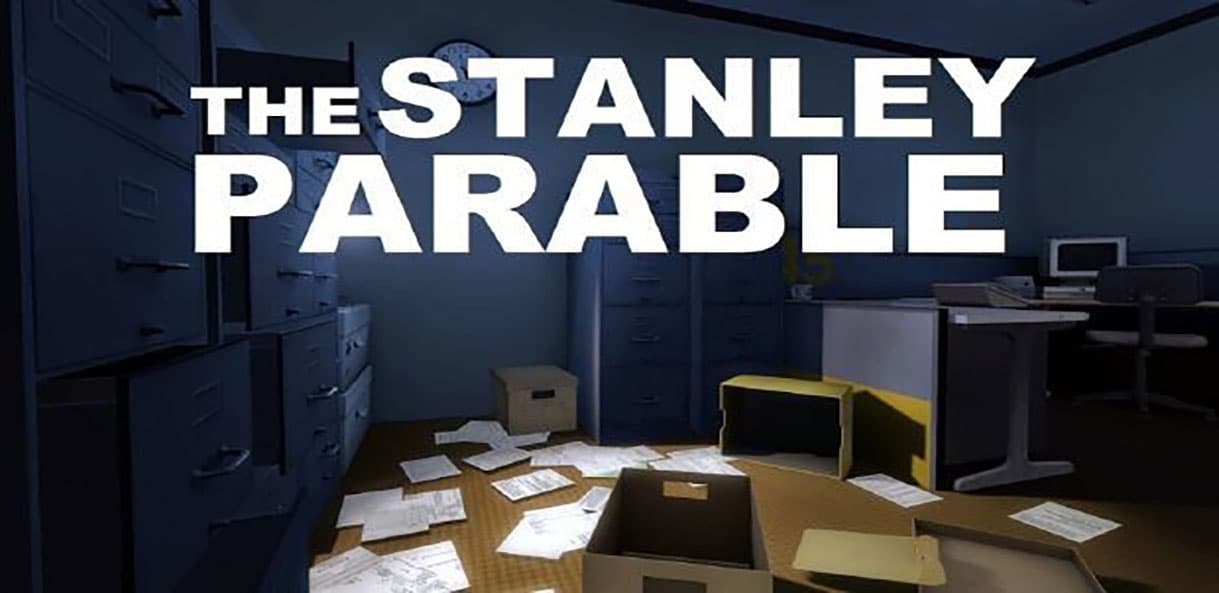
"Walking simulator" has become something of a slur amongst many video gamers these days, and while admittedly it sounds about as exciting as measuring coins, I think the reputation is somewhat unwarranted. As Journey proved: with limitations come innovations, and granted, it would take some pretty inventive innovations to make video-game walking seem fun. I present to you Exhibit A - The Stanley Parable: a 2011 walking simulator that began its life as a free mod for the acclaimed Half-Life 2.
The game sees you play as Stanley: an office-worker who, day in and day out is tasked with the menial duty of pushing buttons on a keyboard based on the orders he receives. One day, Stanley receives no orders... And it's at this point, you as the player take control. Despite this being a single-player game, you're not strictly alone; your actions, or inactions are described aloud by the narrator. You can choose to follow the narrator's prompts to the letter, or you can try to see how far you can push the boundaries of the story by throwing yourself off a platform to prove a point or get yourself ejected into another game altogether - the choice is yours, sort've.
The real magic of this game lies in two things: the limits of your curiosity, and the delivery of the narration. The Stanley Parable is a relatively quick game to complete, but it's the narrators responses that'll have you subsequently walking through the same corridors over and over again. It's incredibly fun to hear the narrator turn from being a mild-mannered and nonchalant companion to a passive-aggressive bully; a hopelessly depressed victim; or a sort've bitter, Machiavellian David Attenborough, all based on your decisions. Though they aren't as recognised as Mario & Luigi, Jak & Daxter, or even Jimmy & Bimmy, Stanley and the narrator definitely deserve a spot amongst the pantheon of legendary video game duos.

As an Xbox 360 owner, I only ever heard tales of the beauty of Journey: an incredible and memorable gaming experience. When it finally released on the Nintendo Switch, I could see first-hand whether it warranted the hype. As far as I'm aware, it's one of the first games to truly capitalise on having a silent protagonist as a fundamental tenet of its design. The game essentially takes that anxiety of playing video games with randoms and normies, gives it a warming cuddle, and tucks it in with a story and some hot chocolate before bedtime.
Journey sees you playing a mysterious traveller who crosses numerous landscapes in order to reach a beam of light in the distance. Along the way, you discover the remnants of a lost civilisation and perhaps, even fellow travellers. The beauty of this adventure game is actually bumping into one of these fellow travellers, with the caveat that you have no other way to communicate with them beyond a strange form of "singing". Now, nothing is stopping other players from just refusing to play along and go off on their own way through the adventure, but those that would rather not take the journey alone are in for a unique experience.
What starts as a sort've teacher/student dynamic blossoms quickly into a kinship. You'll sneak past monsters together; traverse sandy slopes; and maybe at one point you'll get blown down a ravine by a strong gust of wind, setting you back considerably, separating you from your new-found friend, only to be surprised by them willingly throwing themselves down to join you. Maybe they'll be pissed off and cursing you at their screen, but screw that - as far as you're concerned you've just found the best-man for your wedding. Looking back, I guess what the game is trying to say, is that it's not all about the destination, it's about the... Ohhhhhh shit!

There are plenty of video games out there that I'd consider to be memorable, of them there are also a portion that I'd call inspirational, but every once in a while, a video game comes out that taps directly into my emotions and elicits something akin to having the wind knocked out of me. But amongst those select few, only one of those games have I ever taken the time to trawl all corners of the internet to uncover details, secrets and theories about it a decade after I've finished playing it. That's the magic of Limbo - it turns you into a hardcore lore addict.
Limbo is a 2D puzzle-platform adventure game that sees you as a nameless boy traversing through a silhouetted hellscape evading giant spiders, running from malicious tribes, and falling victim to mind-controlling brain worms as you make your way ever closer to your destination. The game's haunting soundtrack, combined with its surreal yet simplistic visuals gives you the sense of utter hopelessness as you cobble together the subtle hints of an overarching story from what few details you're given.
It's a pretty short game, but a steep learning curve and a refusal to hold your hand will prove Limbo to be a challenge enough as you die over and over again, making victory all the more sweet. But just like the mechanics of the game, you're left to your own devices as to what the story truly means, with the creators intent to be that each player interprets the game as they see fit, and though by the end you'll be left with more questions than answers, Limbo's catharsis, much like the Dark Souls series', doesn't come easily; you have to tear it from it's cold, dead hands.
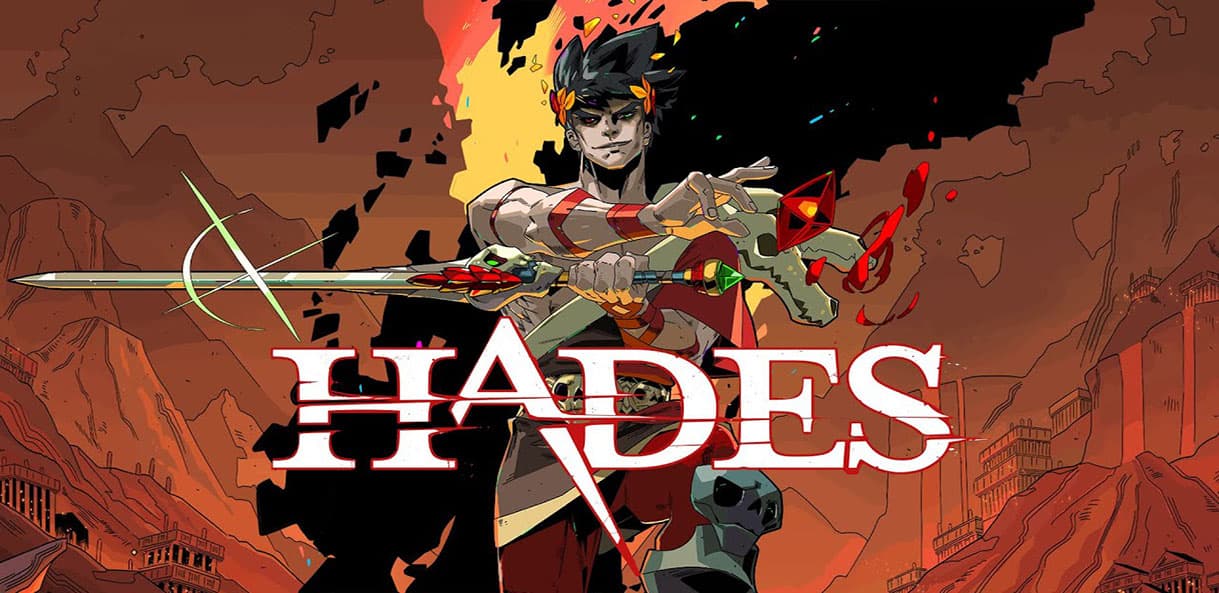
Ok - prepare for three whole paragraphs of me gushing over the genius that is Supergiant's latest offering, because let me be clear - this is not a review, this is a thank you. Holy shit, I can't emphasise how good this game truly is, it simply has it all: an incredible art style, the best representation of Greek-mythological themes I've ever witnessed, levels of replayability that border on addiction, some of the best voice-acting I've ever heard, an intuitive interpersonal relationship progression system... and this is really just scratching the surface.
Hades is a rogue-like action RPG in which you play Zagreus: a Demi-god who seeks to break out of the Underworld and make it to the surface, against his father, Hades' wishes. The game is the newest on this list, and while it retreads familiar formulas seen in many other games, this one has perfected them all. The various weapon choices and combinations of god-given boons keeps the game fresh; there's a firm but fair difficulty spike; and the mechanics are easy to pick up but hard to master, making this a game for everyone and anyone.
I genuinely didn't know if Supergiant could surpass its earlier release, Transistor, but they knocked it out of orbit with Hades. I could write a separate paragraph dedicated to the personalities and characterisations of each of the NPCs you interact with, alone. This game oozes so much charm, I need a bath to wash the soothing tones of *insert literally any character here* out of my ears, just so I can get back to my regular life. Damn... I'm at the end of the third paragraph already, did I mention the heartfelt story yet? Wait... don't go, Hades! I love y
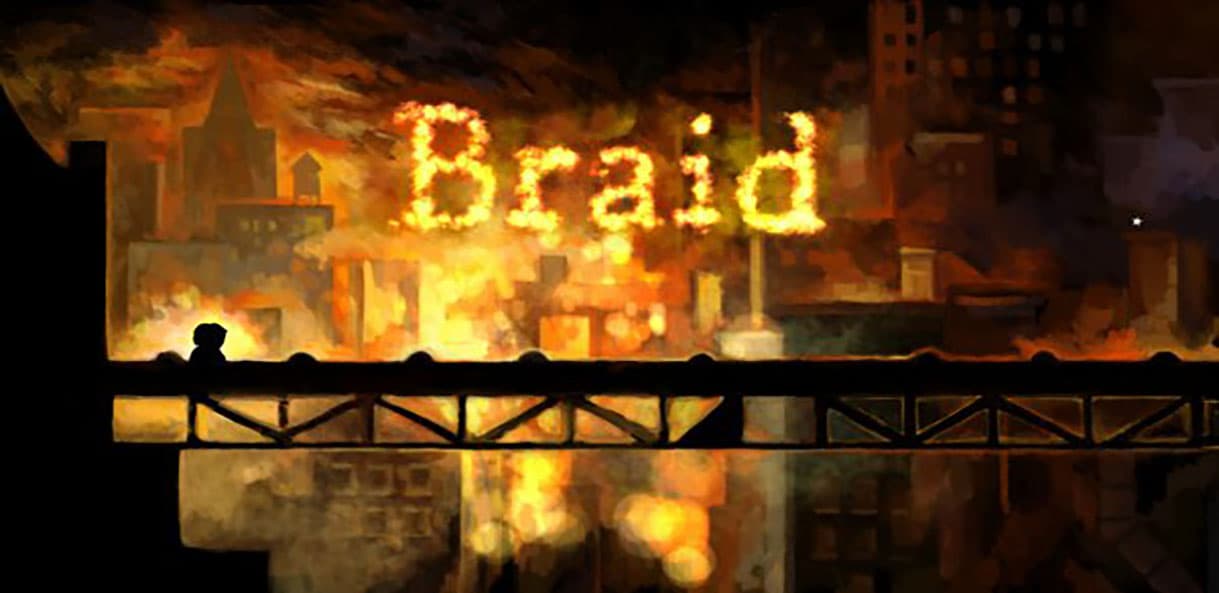
Ahhh, Braid; my holy grail of indie video games... for all intents and purposes, Braid served as my gateway drug to the world of indie games. What initially just seemed like the potential to relive the 2D platform games of my youth, shifted into an emotional rollercoaster that I really was not expecting, nor was I prepared for. You play the role of Tim; a man seeking to rescue a princess from a captor utilising time-based powers. Along the way you learn that Tim is looking to right the wrongs of his past, and so the redemption arc of the hero's journey begins.
Jumping on enemies' heads, completing levels only to find that your princess is in another castle... it all feels so familiar, but then you start to realise that Braid is not a homage; it's a parody, and there's much more humanity to the story than anything I'd experienced before. Braid is one of the first video games where I developed genuine empathy for the characters involved, fervently plowing through each challenge just so I could unravel the mystery of the story in hope that Tim can overcome the odds and win back his Princess.
This game has enough twists and turns that I'm still not wholly sure what the hell happened; one minute you're being enthralled by revelations of Tim's relationship gone awry, the next you're contemplating how this all relates to in-game hints that it's an analogy for the creation of the atomic bomb. Braid was a gut-shot, blindsiding me with its narrative threads of humility, forgiveness, perception, and what it is to be human. In an industry where visuals often speak for themselves, I feel that Braid actually has something to say.